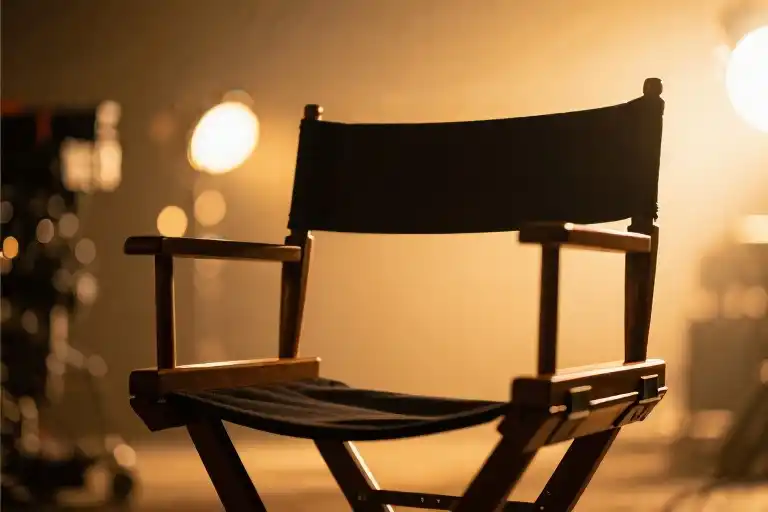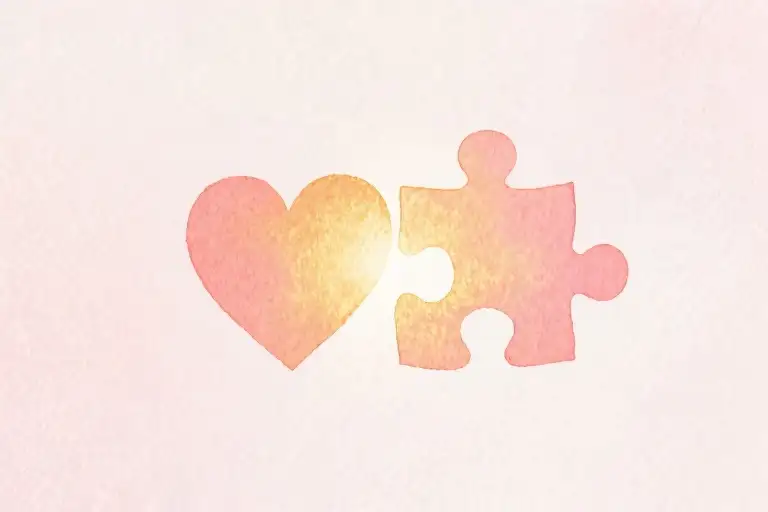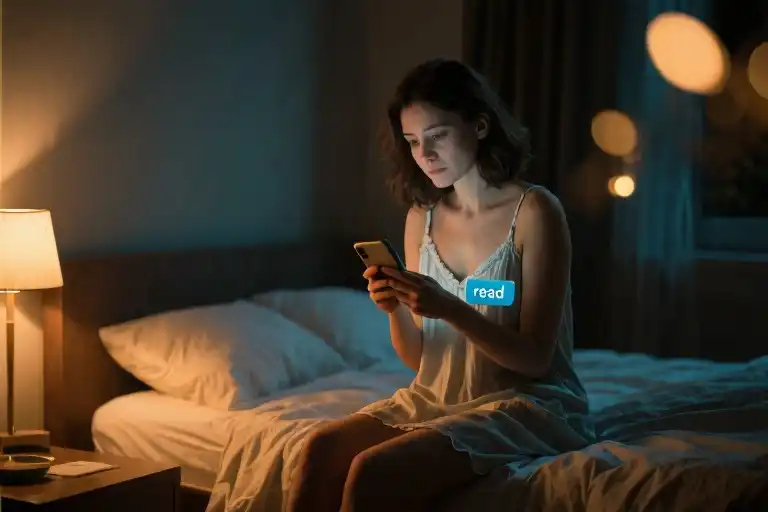There’s a particular ache that lingers when the camera pans away from the second lead—that character who loved deeply but never loudly enough, who memorized every detail about someone else’s happiness while their own heart quietly atrophied. When Jung-hwan in Reply 1988 finally confesses to Deok-sun only to play it off as a joke, or when Lloyd Dobler holds up his boombox in Say Anything… knowing the gesture probably won’t change anything, something in our chests fractures. A recent survey found 83% of viewers experience lingering heartache for these second leads, with 61% admitting they’ve starred in similar real-life scenarios—always the steady presence, never the chosen one.
This isn’t just about fictional characters. That pang of recognition happens because we’ve all held someone’s umbrella while they danced in someone else’s rain. We know the script by heart: learning to exit scenes before our presence becomes inconvenient, mistaking borrowed moments for genuine connection, collecting crumbs of attention like they could somehow nourish us. The second lead syndrome resonates because it mirrors our own unspoken fears—that being good doesn’t mean being wanted, that love might always be something we witness rather than experience.
What if those tears we shed for fictional characters held the ink to rewrite our own stories? Not as supporting actors in someone else’s romance, but as protagonists who finally understand: being memorable isn’t the same as being chosen, and no amount of perfect timing can make someone see what they’re determined to overlook. The second lead’s tragedy isn’t that they lost—it’s that they were never really playing the same game.
When the Camera Focuses on the Second Lead: The Monologues We Never Hear
There’s a particular ache that comes with watching certain characters on screen. Not the protagonists who get the sweeping romantic gestures or the heroic close-ups, but those who stand slightly out of frame – the second leads who love quietly, desperately, and ultimately, unsuccessfully. Think of Jung Hwan in Reply 1988 holding that ungiven ring in his clenched fist, or Hanazawa Rui from Boys Over Flowers walking away with perfect posture while his heart shatters audibly enough for the entire audience to hear.
What’s fascinating isn’t just their fictional heartbreak, but our very real reactions to it. Scrape through the layers of YouTube comments and streaming platform subtitles, and you’ll find the same phrases repeating like a chorus: “Why doesn’t she choose him?” “He loved her first!” “I’m literally sobbing.” The emotional resonance isn’t accidental – we’re not just observers of these characters’ pain, we’re recognizing versions of ourselves in their half-shadowed profiles.
This recognition becomes painfully clear when we line up fictional second lead behaviors with real-life emotional patterns:
- The Memorizer: The character who remembers the female lead’s coffee order (two sugars, no milk) mirrors our habit of accidentally memorizing an ex’s Spotify playlist.
- The Silent Sufferer: When a drama’s second lead swallows their confession to preserve the group’s harmony, it echoes how we’ve bitten back “I miss you” texts to avoid seeming needy.
- The Eternal Supporter: That scene where the second lead cheers louder than anyone at the protagonist’s success? It’s uncomfortably familiar to anyone who’s helped draft a crush’s dating app bio.
What these parallels reveal isn’t just that life imitates art, but that we’ve been conditioned to see our own unrequited experiences through a cinematic lens – complete with assuming our role as supporting characters in someone else’s love story. The cultural narratives we consume reinforce the idea that loving from the sidelines is somehow noble rather than what it often is: an avoidance of putting ourselves at emotional risk.
Notice how second leads are rarely written as having full lives outside their pining. Their apartments are barely furnished, their friendships superficial, their careers an afterthought – as if existing solely in relation to the protagonist. Isn’t that how we shrink ourselves when fixated on someone unavailable? Canceling plans with friends in case they might text, neglecting hobbies that don’t intersect with their interests, framing entire months as “before” or “after” their attention.
Yet here’s what the cameras never show: the moment the second lead goes home after filming wraps. When the makeup comes off and the script gets shelved, the actor moves on to another role. That’s the crucial difference between fiction and our reality – we don’t get to clock out from our own stories. The tragedy isn’t loving someone who doesn’t choose us; it’s continuing to direct our own lives as if we’re bit players rather than the main event.
This isn’t to dismiss the genuine beauty in second lead types – their attentiveness, their emotional availability, their capacity for deep care. These qualities aren’t flaws to be corrected, but misplaced gifts. The real rewrite needed isn’t about becoming someone else, but about redirecting that exquisite care toward someone who can reciprocate it – even if, especially if, that someone is yourself.
The Psychological Director Behind Your Supporting Role
We’ve all had those moments watching a drama where our hearts break for the second lead – the one who remembers birthdays, shows up with umbrellas in the rain, and swallows their confession with a practiced smile. What we rarely notice is how these fictional characters mirror our own psychological scripts, written by invisible directors in our minds.
Trap 1: Mistaking ‘Being Needed’ for ‘Being Loved’
Remember the fox in The Little Prince who asks to be tamed? That desperate longing to be special to someone often blinds us to a crucial difference. When someone texts you at 2am about their breakup but ghosts your lunch date, that’s not love – that’s utility. The brain chemicals released when we feel needed (dopamine hits from being their crisis contact) get confused with the slower, steadier rhythms of mutual care.
I used to keep a mental tally of all the times I’d been someone’s emotional first responder – the midnight taxi after their bad date, the unpaid therapist during their career crisis. Each emergency call made me feel indispensable, until I realized: fire extinguishers are crucial too, but nobody brings them flowers.
Trap 2: Using Pain as Proof of Devotion
Neurologically speaking, intermittent reinforcement – those rare moments when your affection is briefly returned – creates stronger addiction patterns than consistent rewards. It’s why we’ll replay a three-second voicemail fifty times, or treasure that one coffee date from six months ago. The anterior cingulate cortex (the brain’s conflict detector) actually shows more activity during unrequited love than in mutual relationships – we’ve literally wired ourselves to find meaning in the ache.
There’s an uncomfortable truth here: sometimes we cling to the hurt because letting go would mean admitting those years of pining were just that – years spent pining, not building. The pain becomes our resume, our proof that we loved deeply.
Trap 3: Confusing Familiarity for Safety
Our earliest relationship blueprints often resurface in these second-lead patterns. Maybe you grew up believing love meant earning your place through service, or that attention was doled out sparingly like winter sunlight. The adult brain seeks what the child brain knew, even when it’s the emotional equivalent of reheating leftovers – familiar, yes, but never nourishing.
Try this: make two lists. First, all the ways you’ve accommodated someone who didn’t choose you. Then, how your primary caregiver showed affection when you were eight. The overlaps might unsettle you.
Rewriting the Cue Cards
These psychological directors aren’t villains – they’re just working with outdated scripts. The moment you notice you’re auditioning for roles you don’t even want (‘The Always Available One’, ‘The Understanding Friend’), you’ve already begun changing the production. Tomorrow when you reflexively check your phone, pause. That’s your new director saying ‘Cut.’ When you bite back a text, that’s not restraint – that’s creative control.
The best supporting actors know when to turn down roles that don’t serve their craft. Maybe it’s time we did the same.
Casting Call: Auditioning for the Lead Role in Your Own Life
The script we’ve been handed isn’t always the one we’d choose for ourselves. Like background actors waiting for a line that never comes, we sometimes spend years rehearsing for moments that get cut from the final edit. But what if we could call for a rewrite? Not by demanding more scenes in someone else’s story, but by finally greenlighting our own production.
Director’s Commentary: Rewriting Past Scenes
Every relationship leaves behind raw footage – those unedited moments where we played smaller than we truly were. Try this: revisit a memory where you felt like a supporting character in your own life. Now imagine watching it with director’s commentary turned on. Where would you say:
“Here – this is where the camera should have held on your reaction instead of panning away to their response.”
“Notice how this scene frames her needs as the central plot while treating yours like background noise? Let’s adjust that blocking.”
This exercise isn’t about rewriting history, but about recognizing where we accidentally handed over the creative control of our narratives. Those deleted scenes where you bit your tongue? They deserve a director’s cut.
Script Doctoring: From Supporting Lines to Lead Dialogue
Second leads often get stuck with the same tired lines: “I’ll wait,” “I understand,” “Don’t worry about me.” Let’s workshop some rewrites:
| Old Line | New Draft |
|---|---|
| “You can talk to me about them” | “I’m interested in conversations where I’m not just the audience” |
| “I don’t mind” | “What I actually mind is…” |
| “It’s okay if you don’t feel the same” | “My feelings aren’t negotiable” |
The shift isn’t about aggression, but about moving from reactive dialogue to active voice. Notice how the revised lines don’t require anyone else’s participation to hold their meaning.
Negotiating Your Emotional Rate Card
In film production, every role has clearly defined compensation. Why should our emotional labor be any different? Consider creating your personal “relationship rate card”:
- Base Pay: Basic respect, reciprocal interest
- Overtime: Emotional support during crises (requires prior agreement)
- Hazard Pay: Tolerating hot-and-cold behavior (spoiler: this column stays blank)
When we start tracking our actual emotional expenditures – the sleepless nights spent decoding texts, the mental energy devoted to their problems – we often find we’ve been working blockbuster hours for student film wages.
Callback Auditions: Recognizing Your Own Star Quality
That flutter of recognition when you see an underrated actor finally land a lead role? That’s what we’re cultivating for ourselves. Keep a running list of:
- Scenes where you showed up for yourself unexpectedly
- Improvised moments of unexpected courage
- Times your instincts proved right (even if you ignored them)
These aren’t just feel-good memories – they’re your demo reel, proof that you’ve always had leading role potential waiting in the wings. The next time you doubt your place at center stage, press play on this collection.
The most radical rewrite might be this: realizing you weren’t cast in the wrong story, but that you’ve been reading from the wrong script entirely. The pages you thought were your whole narrative? They were just early drafts, background material for the real production now waiting for your green light.
When Second Leads Take Center Stage
Some of the most electric moments in storytelling happen when the perpetual backup steps into their own light. Think of Andy Sachs tossing her phone into that Paris fountain – not as someone’s assistant, but as a woman reclaiming her narrative. Or Elizabeth Gilbert trading her divorce papers for a plane ticket, proving that rock bottom can become fertile ground when you stop auditioning for roles that shrink your soul.
These fictional second-lead-turned-protagonists resonate because they mirror our secret yearnings. We’ve all had moments of watching our own lives from the sidelines, waiting for someone else’s approval to make us real. The magic happens when we realize we’ve been holding the script all along – and it’s editable.
The Quiet Revolution of Side Characters
Modern storytelling increasingly subverts the second lead trope in fascinating ways:
- The Walkaway Scene: No longer just noble sacrifices, characters now exit relationships that don’t serve them (see: Queen Charlotte‘s Lady Danbury)
- Career Over Crush: Female leads prioritize ambitions over unrequited love (The Bold Type‘s Jane choosing journalism over her “perfect” boyfriend)
- Friendship Finales: Platonic bonds getting the emotional climax traditionally reserved for romance (Ted Lasso‘s Roy and Jamie reconciliation)
These narrative shifts matter because they expand our imagination of what’s possible. When we see someone reject the “always the bridesmaid” fate on screen, it plants seeds for our own rebellions.
Your Highlight Reel
Consider these prompts for reframing personal history:
- The Director’s Cut: Identify a past “supporting role” moment. How would present-you reshoot it? (Example: That time you muted your needs to keep peace becomes a scene where you voice boundaries)
- Casting Against Type: List three qualities you’ve undervalued because they didn’t fit the “love interest” mold. Now cast them as heroic traits in your current story.
- Deleted Scenes: What beautiful moments got edited out because they didn’t serve someone else’s plot? Start restoring them.
The Sequel Only You Can Write
Second lead syndrome loses its power when we recognize it as creative limitation rather than destiny. Those tearful goodbyes to unreciprocated love? They’re actually opening credits. The hours spent analyzing someone else’s mixed signals? That’s valuable screenwriting energy waiting to be redirected.
Here’s the secret most rom-coms won’t tell you: The most compelling characters aren’t those desperately seeking love, but those fully alive in their own stories. When you stop auditioning for roles in other people’s narratives, you suddenly notice the production design of your life – the supporting cast who’ve been cheering for you all along, the plot threads you’ve been too distracted to follow, the undiscovered locations where your story could go next.
So let’s retire the idea that growth requires dramatic rejection scenes or makeover montages. Your protagonist era might begin as quietly as saying “I prefer main character energy today” to your reflection, or as simply as blocking off Saturday mornings for your abandoned pottery hobby. The camera’s been rolling this whole time – you get to decide what makes the final cut.
The Final Scene: Holding Your Own Script
There comes a moment in every story when the background music fades, when the supporting characters step out of frame, and the spotlight finds its true subject. For too long, you’ve been holding someone else’s script, memorizing lines that were never meant for you to deliver. That ends now.
Picture this not as an ending, but as the first establishing shot of your new narrative. The camera tilts up from your hands—no longer clutching at disappearing coattails, but holding something far more powerful: your own field slate. That rectangular board filmmakers snap before each take, the one that reads:
SCENE 1. INT. YOUR LIFE – DAY
ACTION
We’ve spent these pages dissecting the second lead syndrome, that peculiar ache of loving from the wings. We’ve named its disguises: the late-night listener, the perpetual understudy, the one who knows every coffee order but never gets asked for theirs. More importantly, we’ve learned to spot these patterns not with shame, but with the quiet clarity of a director reviewing daily footage.
Here’s what the raw footage of your life reveals: every time you muted your needs to amplify someone else’s story, every smile you wore like armor while your heart staged silent protests—these weren’t failures. They were rehearsals. The kind every great performer undergoes before stepping into their destined role.
Your Director’s Notes:
- The clapperboard moment: When old habits whisper that you should settle for breadcrumbs, snap your own mental slate. That sharp “clack” sound? That’s the boundary being set.
- New blocking instructions: Stop entering scenes from the sidelines. Walk in through the front door of your relationships, with the unapologetic presence of someone who belongs in the frame.
- Script revisions: All those “I’m fine” lines? Mark them in red. Rewrite them as “I matter.” The dialogue of your life should sound true when spoken aloud.
This isn’t about becoming the tyrannical lead who dominates every scene. It’s about refusing to be the eternal backup singer when you’ve got solo material waiting. The world has enough martyred second fiddles—what it needs are more people brave enough to play their own compositions.
Continuity Errors to Watch For:
- The time warp: That urge to revisit past scenes, obsessing over “what if” alternate takes. The footage is shot. Let it live in the archives.
- Improvised devotion: Spontaneous acts of love are beautiful; spontaneous self-erasure is not. Keep your generosity on script.
- Misdirected focus: When you find yourself framing shots for someone else’s approval, recenter your lens. The most compelling stories are told by those who know where to point the camera.
We’re not pretending this is easy. Old scripts have gravitational pull. Some days you’ll forget your lines and default to that familiar supporting role. When that happens, hear this as your cue line: “Cut. Let’s try that again with you as the lead this time.”
So here’s your closing shot: You, standing at the edge of a new scene, no longer waiting for someone else’s storyline to accommodate you. The slate reads whatever you’ve chosen to write there. Maybe it’s “INT. COFFEE SHOP – CONFIDENT EYE CONTACT” or “EXT. SUNSET – UNAPOLOGETIC JOY.” The specifics don’t matter as much as the authorship.
Your hands no longer ache from holding other people’s scripts. The weight you feel now? That’s just the heft of your own story, finally full enough to be worth telling.
FADE TO BLACK.
POST-CREDIT SCENE: Tag your next chapter #MyOpeningLine and share the first sentence of your new script. The sequel starts whenever you’re ready.





